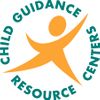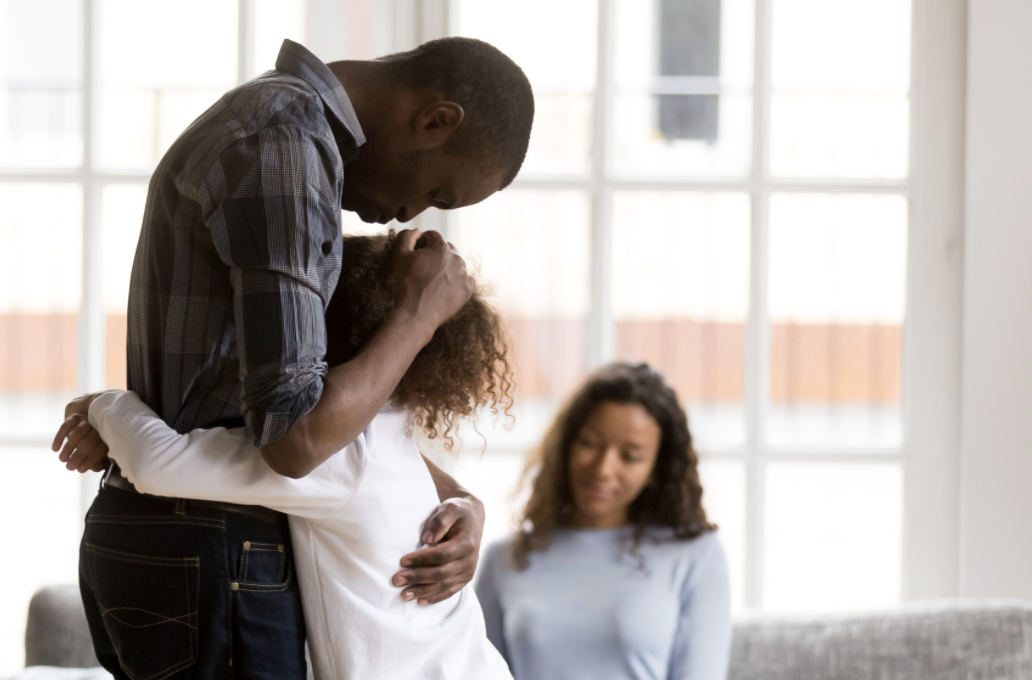By Katie Grilli, Family First Therapist
Just over two months ago, we were told to stay in our homes and avoid contact with other people. We had to adapt ourselves to this new way of living. For some this may have been easier than for others. Maybe you like staying at home – waking up a little later, enjoying your cup of coffee, and saving time on the commute to work. But also, maybe you find yourself missing so many of the things we took for granted before all this started – running into the store to pick up some milk and eggs, waving the kids off as the bus pulled up, going to the gym for “me time” or sitting at a restaurant celebrating a friend’s birthday. Our “normal” routine has been completely uprooted, shaken up, and thrown out. And yet, somehow all of the same responsibilities are expected of us. We still need to put food on the table, kids still need to complete school work, and many jobs are expecting us to perform “business as usual.” It might be easy to get wrapped up in the long list of what needs to get done with our acknowledging or even realizing the trauma of the last weeks. In reality, this is a traumatic upheaval of our lives and we need to treat it as such.
Dr. Bessel van der Kolk is the leading trauma researcher of our age. He has spent his entire career studying the effects of traumatic events on the lives of children and adults. In his work, he names several preconditions of trauma that can impact our ability to cope with these experiences. Though the COVID-19 Pandemic may not seem like the definition of trauma at face value, it is, in fact, very traumatic for many us. If you are a healthcare worker, or frontline provider of any type, or if you have lost loved ones or jobs due to the disease, the impacts may be huge to your mental health. Even if you haven’t been as tangibly impacted by Covid-19, the changes in our day-to-day, the increase fear and anxiety, the shifts in our interaction and experiences, can cause long-term stress and trauma. Today, I am going to discuss these preconditions and how we can help ourselves move through this challenging time.
Lack of predictability
With our routine completely changed, and many of the things we are used to doing no longer options anymore, our days can be unpredictable. Just as we may have felt that we are getting into the swing of things, we are now changing it up as we slowly re-open and move from red to yellow and eventually to green. This can cause anxiety about productivity levels and uneasiness in our children about what is to be expected next. When this feeling of lack of predictability is prolonged it can feel traumatic to our bodies and our minds, leading to depressed moods or feelings of helplessness.
Here are a few ways to combat this:
- Set up an order for the day. This may need to adjust depending on what your needs are each week! But having structure helps.
- Plan certain activities at certain times
- Make things predictable for ourselves and our children
- This might mean simply scheduling to have meals at the same time every day.
- Plan things that you can look forward to
- On Wednesdays we have family game night!
- Saturday we will have a Zoom call with grandma
- Try creating a calendar of connections and activities
Immobility
Many of the changes we have experienced over the past two months involve a loss of independence. The things normally available to us are no longer available as choices. This can lead to the trauma response “fight or flight.” Some may feel paralyzed and unsure of what to do next and for others they might feel activated toward action to move, protect, and take care of ourselves and others. You might feel scared and anxious, or angry and frustrated. As we open our doors and businesses more, you may find you still have feelings of immobility or that your emotions are stronger when things are in the in-between – not the same as before the pandemic, but not the same as shelter-in-place regulations either. Finding an outlet to these feelings is key to reducing the impact of trauma.
- Yoga, meditation, mindfulness, breathing
- Exercise outside
- Have a dance party in your kitchen and shake it out!
- Create or build something – a meal, art, music, writing, a fort in the living room
Loss of connection
Connection is inherent to our nature as humans. We do not exist as individuals, we are collective creatures. We thrive off being seen, heard, and in touch with others. When we cry, there is a physiological response from others. When we laugh, others laugh with us. With social distancing and wearing masks we are physically far from people and our facial expressions go unseen. How can we create new connections during this time?
- Hug your children or those in your home
- Call friends and family – hear their voices!
- Send letters to those far away
- Plan a family meal or family game night
- Play dress up, make music
- Schedule virtual contacts – facetime, zoom, or phone calls – see their faces! It’s not the same, but it helps.
- As things open up, safely schedule time together in a way that feels okay to you.
Numbing out and loss of sense of time
When we encounter a traumatic event there can often be a feeling of hopelessness. Time seems to stop. Many people are joking these days that they don’t know what day it is, but this is a real phenomenon! Our body’s natural response to this is to numb or space out. We often resort to social media or to TV or other forms of entertainment to distract ourselves from what is going on around us. While at times this can be helpful, it can also be dangerous to lose touch with what is going on. So, how do you restore your body and brain to be more in sync?
- Learn to notice yourself. Without noticing, or pausing for a moment, we react to situations with anger, fear or irritation.
- Notice and name things – “this is what is happening to me”
- “Right now I am freaked out, but when I cooked a meal or when I called a friend, I began to feel better.”
Mindfulness with self-compassion
- Once you notice what is happening you can chose to do something that you know makes you feel better from past experience
- Try closing your eyes and focusing on your breath. Notice uncomfortable thoughts or sensations and then let them pass you by, coming back to your breath.
- Try to stay away from alarmist news stories
Loss of safety
Many of us are not feeling safe on a large scale due to COVID-19. So many unknowns are circulating around about the future and about our health. Trauma makes us feel unsafe in our bodies. Stress hormones give us warning signs like increased heart rate, breathing, or muscle tension. But we often become expert at ignoring those feelings and hiding from them.
- Think about: What makes me feel safe? What makes my child feel safe?
- Listening to music
- Touch, hold, or hug each other
- Get in touch with inner self through movement or meditation
- Privacy, everyone needs a place to which they can withdraw
- Set boundaries with your family – “When I am in this chair, that is my space, don’t talk to me, or bug me.” Boundaries create a sense of safety that we (and our children) can rely on.
Loss of sense of purpose
Put simply – how are we making meaning of our life during this time? What is our purpose? This may have changed due to job circumstances, or inability to do the things we used to. This may continue to change as we begin to reopen. It is essential to our nature as humans to feel like we are contributing in some way.
- Reflect on what is important to you
- Notice things that bring you joy
- Make a to do list or set attainable goals
- Cross them off when you finish for an added sense of accomplishment!
- Keep a gratitude journal
You may notice that you are feeling one or two of these things or maybe several. There is no right or wrong here! I would encourage you to notice those things. Noticing is the very important first step toward dealing with this situation in a healthy way! You can use the tool below as a way of noticing and bringing awareness to your present experience. It is a quick way to check in and actually see how we are doing in protecting ourselves from this traumatic situation.
Daily Pandemic Questions
Ask yourself these questions. If one or two are difficult to answer, notice that. That might be an area you want to give yourself a little extra support. And overall, be patient and kind to yourself. It is ok if not all these areas are perfect – that’s why we are checking in on them! Because during this time, with all the effects of this trauma, things aren’t going to be perfect, but we can take small steps to ease it and move through it:

About the author: Katie Grilli LPC, NCC, CYT-200 is a therapist in the Family First program at Child Guidance. Before Family First, she worked in Extended Assessment and BHRS for three years. Katie was recently certified as a yoga instructor and is passionate about sharing the multitude of positive effects that yoga has on the mind and body. She is thrilled to be able to integrate the practice into her work as a therapist as well as into her own life. Outside of her work, you can find Katie reading, practicing her photography skills, playing with her dog, or doing outdoor activities with friends and family.

